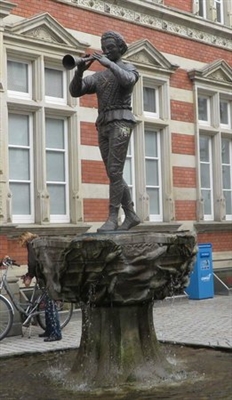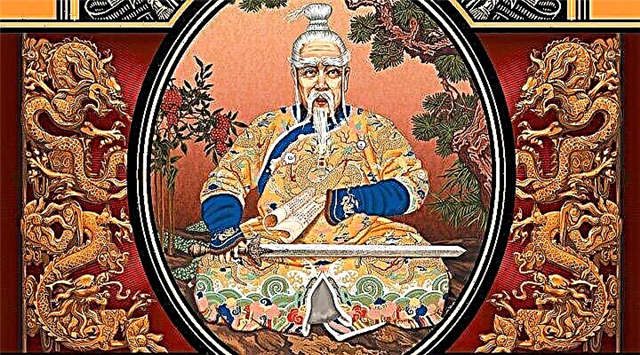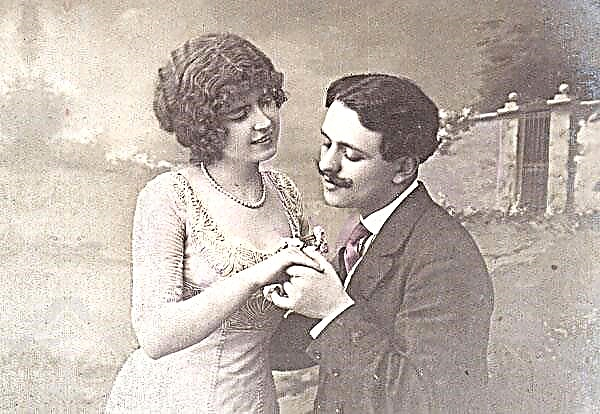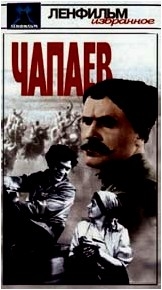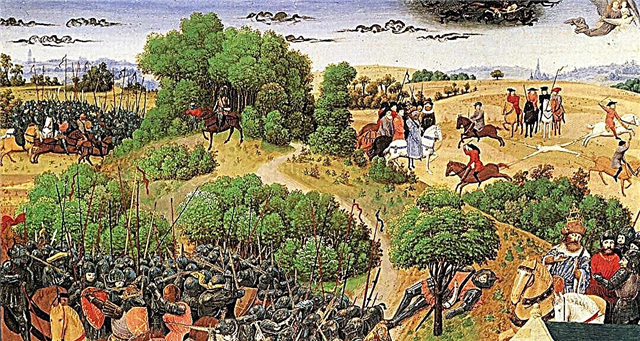On a rainy November evening of 186 * in St. Petersburg, Marya Mikhailovna, a twenty-three-year-old rich widow of a guard adjutant, begins to keep an intimate diary to sort out the reasons for her constantly bad mood. It turns out that she never loved her husband, that with her son, three-year-old “sour” Volodya, she is bored, and the capital's light does not provide any entertainment, except for trips to the Mikhailovsky Theater for performances with cancan. The spleen does not dispel either the letter received by Maria Mikhailovna from Paris from the cousin of Stepa Labazin, who became a “philosopher” and “physicus” during their separation, nor her visit to sophisticated socialite friend Sophie. Having caught Sophie with her lover, the narrator makes her a severe reprimand, although she herself guesses that she is more likely to envy someone else, even the past, but still happiness. True, a certain novelty in the life of Marya Mikhailovna is introduced by her acquaintance with the “clever” Plavikova, in whose salon various “writers” gather on Thursdays, including the forty-year-old (that is, already very elderly) novelist Dombrovich. Succumbing to idle curiosity, the storyteller also begins to read European magazines, trying to maintain talk about B. Spinoza’s philosophy and generally “smart”, but she only has a burning interest in the French woman’s lifestyle, to which they completely forget about secular ladies. men. In order to get to know Clemence, the most brilliant of these courtesans, she goes on Christmas masquerades, everywhere meeting Dombrowicz. Even Clemence, when their acquaintance finally took place, speaks predominantly about Dombrovic, emphasizing that he is much higher than all secular dandies. Dombrovic, with whom the storyteller sees more and more often, doesn’t deceive expectations: he is charming, tactful, witty, able to spend hours entertainingly discussing writers, people of the world, and himself. “After talking with him, you somehow calm down and put up with life,” the narrator writes in the diary, noting that she begins to judge a lot like her new acquaintance. The diary is filled with thoughts about women - “blue stockings” and “nihilists”, stories about spiritualistic sessions, secular gossip, but with each new entry, Dombrovic becomes more and more the central hero. He recalls his meetings with Lermontov, severely assesses Turgenev and other contemporary fiction writers, proves how harmful marriage bonds are to smart women, and gradually teaches Mary Mikhailovna the art of “picking flowers of pleasure” so that “the sheep are safe and the wolves are full.”
Two months after the meeting, the inevitable happens: once for the first time in Dombrovic’s apartment and allowing himself champagne at breakfast, the narrator surrenders to her teacher. At first she, of course, feels dishonored and almost raped: “And this is done in broad daylight ... A thin, civilized man treats you like a fallen woman,” but calms down pretty quickly, because “nothing can be turned back ", And a few days later writes in the diary:" What is there to cheat? Let's say right away: I can’t live without it! That was supposed to happen! ” Without revealing their secrets, Marya Mikhailovna and Dombrovich see each other almost every day in secular society, and, following the sensible advice of her mentor, our narrator now enjoys great success among dairy farmers and dignitaries than before. Her life finally made sense, and the week is now so full of affairs that time flies with an emergency train: worries about spectacular outfits, visits, troubles to patronize an orphanage, theater. But the most important thing: twice a week, meeting with her lover at home, the rest of the days, Marya Mikhailovna, telling the servant that she needs to go to the Gostiny Dvor, furtively hurries to Tolmazov Lane, where Dombrovich rents a room with furniture especially for intimate dates. Education “on the part of the strawberry,” as Dombrowicz puts it, is in full swing: an experienced seducer first introduces his student to the novel C. D Laclau, “Dangerous Liaisons,” “Confession” by J. J. Russo, and other scandalous books, and then persuades her to accept participation in secret parties, where five dissolute aristocrats, reputed to be light-minded women and the most impregnable women of the capital, meet with their lovers. Champagne, seductive toilets, a cancan, composing acrostics for various obscene words, drinking stories about who, when and how, lost their innocence - this is the world of sweet vice into which Marya Mikhailovna began to plunge. And, probably, she would plunge headlong if one of the evenings, when the dinner of the capital's satyrs and bacchanals turned into a real orgy, the virtuous Styopa Labazin did not suddenly appear among the feasting parties. It turns out that he had just returned from foreign wanderings and, having learned from the maid Arisha that Marya Mikhailovna was in the abyss of debauchery, immediately rushed to save her. There is no limit to the awakened bashfulness and remorse of our storyteller. In the presence of Stepa, she once and for all breaks off her relationship with Dombrowicz - a man, no doubt, bright, talented, but, like all people of the forties, isolated, corrupted and extremely selfish. Now Marya Mikhailovna, who spent several days in conversations with the resonator Stepa, wants to find a “whole worldview” and, having forgotten that there are men in the world, embark on the path of asceticism and concern for others. On the advice of Stepa, she gets acquainted with a certain Lizaveta Petrovna, who distributed to the poor her entire fortune and devoted herself to the re-education of fallen girls. Together with the new mentor, the storyteller visits hospitals, shelters, soldier’s houses and, on the contrary, chic entertainment houses, scandal everywhere with parasites and a word of love, trying to revive prostitutes to a new, honest life. The eyes of Marya Mikhailovna are opened by unfortunate Russian girls, whom, it seems to her, only terrifying poverty pushed on the path of vice, and a whole gallery of French women, Germans, English women who came to St. Petersburg brothels specifically to earn a dowry or money for a secured old age. With a patriotic desire to save exactly the lost Matresh, Annushek, and Broadsword, the storyteller creates something like a correctional house, teaches girls to read and write the virtues, but soon becomes convinced that her wards either strive again to go on a spree, or extort money from her by hook or by crook. . Frustrated by the prospects of asceticism and having spoken in detail with the steadfast adviser Stepa, Maria Mikhailovna comes to the conclusion that many women do not trade with themselves at all because of poverty, but for pleasure, for the sake of a fun life and that it is better for her to turn her love not to them, but to his own son.
The plans to leave St. Petersburg abroad are hindered by the unexpected illness of the child. Marya Mikhailovna, who did not even expect from herself that she would love her “sour” Volodka so much, decides to spend the summer at the dacha near Oranienbaum, away from the capital’s “vanity fair”. Styopa settles with them under one roof, continuing the work of educating the cousin in the spirit of positivism of the sixties. Marya Mikhailovna, who admits that she was always indifferent to nature, to music and to poetry, develops both emotionally and intellectually under the influence of conversations with Stepa. She no longer reads French novels, but “The Eve” by I. Turgenev, “Fables” by Lafontaine, “Hamlet” by V. Shakespeare, and other clever books. But a little bit still suffers from the fact that there is no one around who could appreciate her as a woman. Acquaintance with Alexander Petrovich Krotkov makes a change in a respectable and fresh life. This twenty-six-year-old scientist, Stepa’s acquaintance in foreign life, also settled for the summer with his cousin near Oranienbaum. He despises women, which at first offends and then infuriates our narrator. Her diary is filled with a retelling of Krotkov's arguments about science, cosmopolitanism, female emancipation, and other important things. Marya Mikhailovna loses her hard-won balance. She is in love again and is furious at the mere thought: “This man now walks along Peter 692
burgu, smokes his cigars, reads books and thinks about me as much as about the Chinese emperor. ” However, Alexander Petrovich, it seems, is quite ready to combine his fate with the fate of the storyteller, but ... The result will be a marriage more likely to be calculated, at best, by heart inclination, and not by passion, and this emotional indulgence of the chosen one does not suit Mary Mikhailovna. She dreams of a union of equals, then goes crazy with passion, and the diary turns into a series of feverish confessions, accusations and self-accusations, thoughts that the storyteller’s whole life is “one wandering, one helpless and hopeless weakness of spirit”, and in all of her "Actions, thoughts, words, hobbies are only instincts." There is clearly no need to live anymore. Therefore, having decided to commit suicide, Marya Mikhailovna makes farewell visits, says goodbye to the saint in her self-deception Lizaveta Petrovna, finally visits all the Petersburg theaters, including Alexandrinka, where A. Ostrovsky’s “Thunderstorm” was going on, and ... Once again turning away from Krotkov’s declarations of love, refusing to listen to Stepa’s usual reasons, Marya Mikhailovna kisses her son sleeping in the crib and re-reads the will written under her dictation by faithful Stepa. The fate of Volodka is entrusted in this will to Alexander Petrovich Krotkov. The diary should be passed on to the son, “when he is able to understand it. In it he will find an explanation and, perhaps, a good everyday lesson. " And the storyteller herself takes the poison, passing away with a smile on her lips and a Shakespeare couplet from the Hamlet: “How can such a denouement be longed for? Die, fall asleep. "

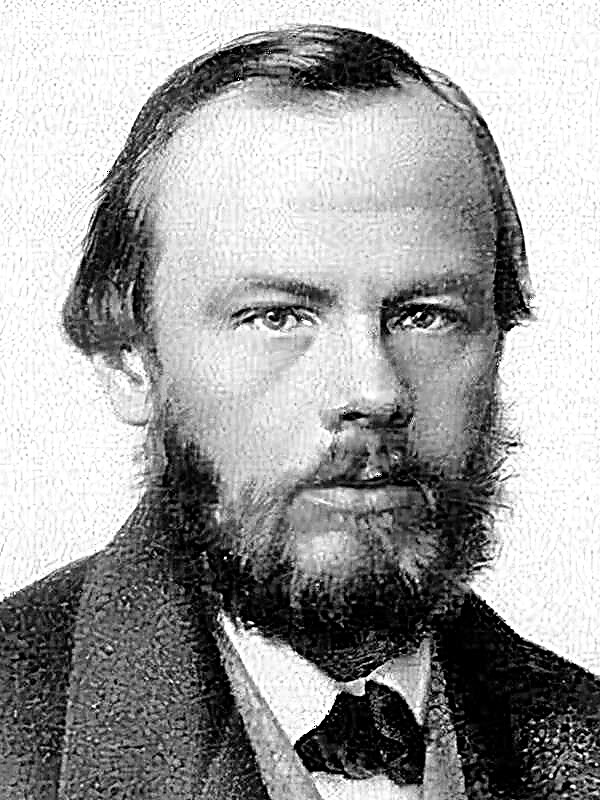
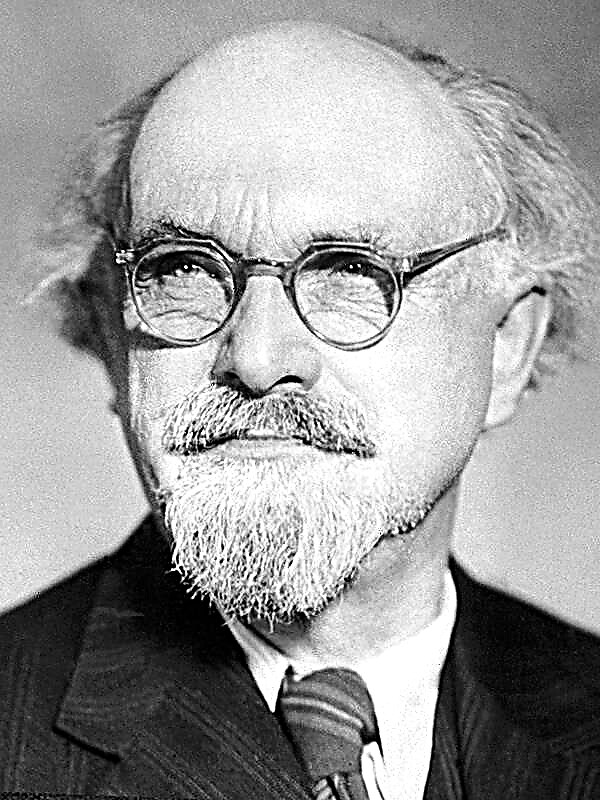
 Two Ivan
Two Ivan